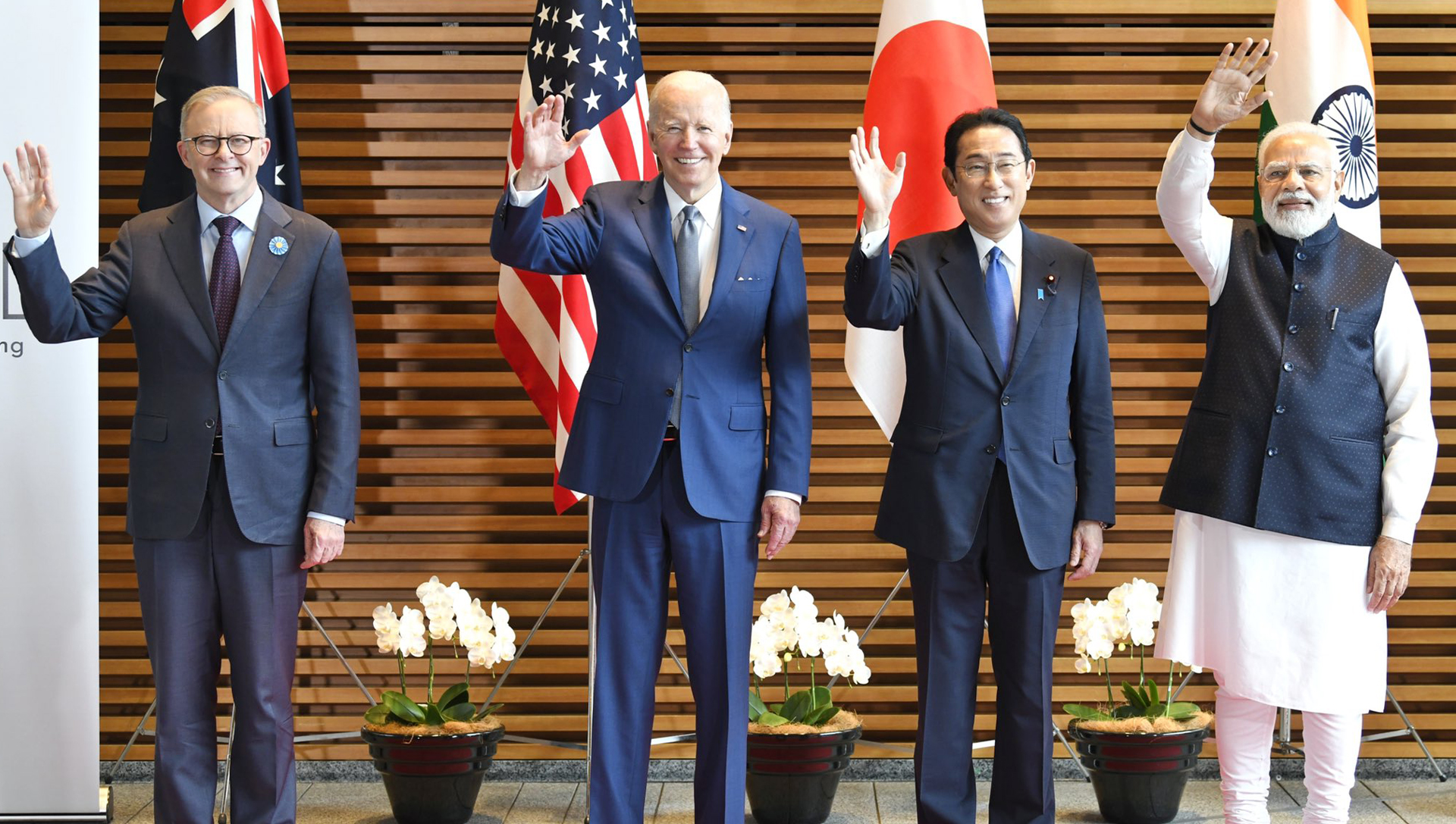This final week of May 2022 is quite significant. There is a WEF summit going on in Davos, while Tokyo just witnessed the formation of a new economic bloc that has 12 countries – one that is being called the Indo-Pacific Economic Framework or IPEC. This summit was held on May 23 and was attended by heavyweights including PM Narendra Modi, US President Joe Biden, Japan’s PM Fumio Kishida, and the new Australian PM Anthony Albanese among others.
The background that precedes this important week is equally, if not more, important. Covid-19 and the subsequent lockdown cascaded an economic disruption of global proportions. The chief hit, according to Amitava Kant of Niti Aayog (speaking at the Davos Summit), has been in the areas of production and supply chain systems.
If reading between the lines is permitted, the general sentiment that underlines a portion of the summit is that it was the lockdown in China that resulted in a near-breakdown of the global supply chain (China remains the prime manufacturing hub for the biggest economies), and once lockdown-as-a-response replicated itself around the world it eventually shrunk the global economy.
This economic catastrophe is an indication that even in a deeply globalised world, like the one we live in today, this form of dependence can be quite a disadvantage during emergencies. Hence there is an urgent need to reconfigure the global supply chains and diversify into other identified manufacturing destination states.
There was another slightly different line of thought from some of the other speakers, one that while stressing on global interdependence (the flipside of which is to remain China-dependent) for some more time foresaw the Covid-19 disruption as one reason to accelerate the ushering of robotics to spread out the supply chain more globally.
Thus, in terms of the general sentiment at Davos, considerations and debates about the role and continuity of China controlling most production and supply chokepoints have remained dominant so far.
In Tokyo, the focus on creating this IPEC framework (as is being stated) is for the purpose of providing reliable business partners to the West, outside of China. The focus would remain on supply chain, decarbonisation, and the building of a fair trade system. Apart from India, South Korea, Japan, and Australia, Tokyo, the meet saw countries like Vietnam, Malaysia and Indonesia participate in it.
But while there is a lot of enthusiasm, as we notice in the Indian media, there remain a couple of issues that need to be addressed. While Mr Kant spoke in Davos about the reconfiguration of the supply chain, he did admit that there is a massive shortage of skills outside China and that other nations have to really step up and upskill their workforce to be able to present some competition. The full impact of this could even mean a reconfiguration of the entire education system in several nations.
That is a serious challenge; realistically how many nations are willing to put themselves on the block for this remains to be seen. And even if they do, this will take a lot of time. (Hence the mention of robotics, perhaps?)
Besides, if the goal of the West is to isolate China, expectations of standard practices like decarbonisation, setting up the platform in a manner that Western small businesses can compete in Indo-Pacific as well, and digital economy dependence is bound to make it extremely difficult for the ASEAN nations (and India) to participate in this exercise fruitfully. If that becomes a reality, then isolating China this way would remain a non-starter.
Southeast Asia remains and is bound to remain a crucial hub in the global supply chain for some time. If we consider the crude (but realistic) picture of the first world continuing to exist and thrive through third-world production and supplies, then the rest of the geography – MENA, CAR, East Europe, or the rest of Africa – is rife with their own sets of problems related to religion or otherwise, do not present a favourable image. Hence the West’s focus on the Indo-Pacific region is understandable.
But the issue, simply put, is that isolating China in this fashion may not be the wisest option. China has spent considerable time and resources cementing its relations with the key ASEAN states and is also putting its weight behind regional integration through opening up mutual markets (read RCEP). The ASEAN nations, even when some of them are in political disagreement with China over this or that issue remain too closely linked with China economically to create breakaway blocs or be active partners in a ‘framework’ (not an agreement) like IPEF where there is no benefit like market access, one that the RCEP promises to provide.
So why is India a part of this? New Delhi understands that this is a step towards containing China, no matter how vaguely defined, and hopes that this shapes up tangibly in the near future. The US has a fair amount of larger issues which stop Washington from going into a direct confrontation with China. But starters like these are important; what is a commercial framework today might be a political framework tomorrow. This could also be a balancing act for the stance New Delhi took during the Ukraine war and has maintained so far.
Is there a chance that the IPEF gets reduced to a footnote once the midterms are over in the US?
Difficult to say. However, what is significant with these two big events is that there are some indications that the West, after realizing the stakes involved in dealing with China, has finally begun moving. One expects more such initiatives to follow before they finally begin making sense to both the West and its intended partners.
(Arindam Mukherjee is a Calcutta-based author and a Learning & Development professional who likes to dabble in Eurasian geopolitics during his spare time.
Disclaimer: Views expressed above are the author’s own.)












